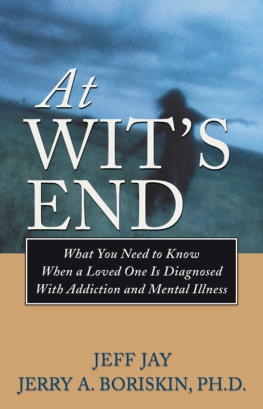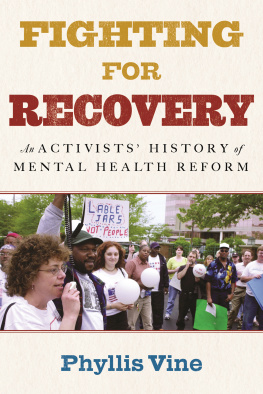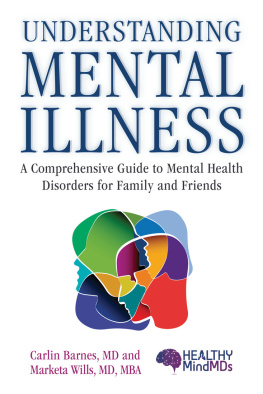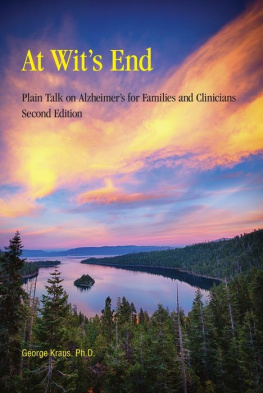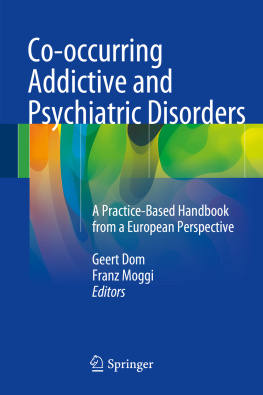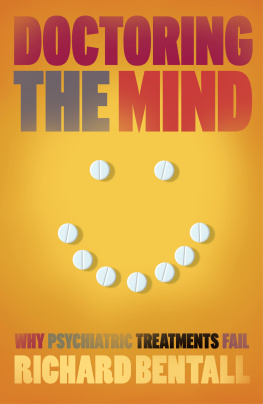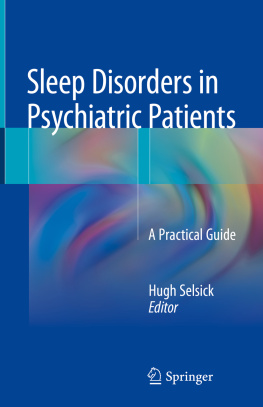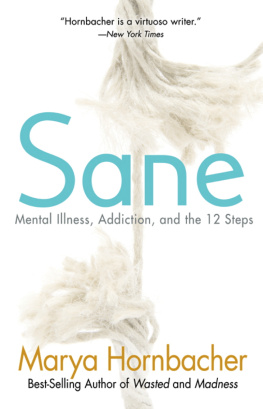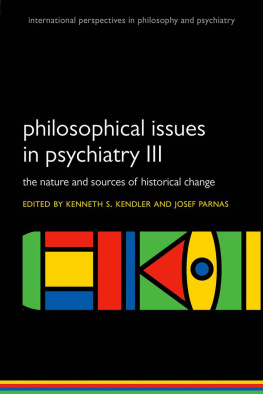
A practical step-by-step guide for people seeking hope and help through the shadowy maze of mental illness and addiction.
William Cope Moyers
author of Broken: My Story of Addiction and Redemption
At Wits End skillfully shares useful science and practice in an engaging and manageable read. When nothing is left but hope, this book is a light to stable and rewarding recovery.
Johnny W. Allem
president/CEO of Johnson Institute
An essential addition to addiction literature and an invaluable guide for families.
Katherine Ketcham
coauthor of Teens Under the Influence:
The Truth about Kids, Alcohol, and Other Drugs and
Broken: My Story of Addiction and Redemption

What You Need to Know
When a Loved One Is Diagnosed
with Addiction and Mental Illness
Jeff Jay
Jerry A. Boriskin, Ph.D.

Hazelden Publishing
Center City, Minnesota 55012-0176
800-328-9000
hazelden.org/bookstore
2007 by Jeff Jay and Jerry Boriskin
All rights reserved. Published 2007
Printed in the United States of America
No portion of this publication may be reproduced in any manner without the written permission of the publisher
Library of Congress Cataloging-in-Publication Data
Jay, Jeff, 1954
At wits end : what you need to know when a loved one is diagnosed with addiction and mental illness / Jeff Jay, Jerry A. Boriskin
p. cm.
Includes index.
ISBN 978-1-59285-373-1 (softcover)
1. Dual diagnosisPatientsMental health. 2. Substance abusePatientsMental health. 3. Mentally illDrug use. I. Boriskin, Jerry A. II. Title.
RC564.68.J39 2007
616.86075dc22
2006039649
11 10 09 08 07 6 5 4 3 2 1
Cover design by Dave Spohn
Interior design by Ann Sudmeier
Typesetting by Prism Publishing Center
Introduction:
The Art and Science of Hope
W hen mental health issues and addiction become enmeshed, we refer to them as co-occurring disorders. Examples include anxiety and alcoholism or depression and addiction to narcotic pain medication. Co-occurring disorders present a greater level of complexity in diagnosis and treatment than addiction or mental health issues alone. If we treat the alcoholism without addressing the anxiety disorder, for instance, the individual may not be able to participate meaningfully in therapy or Twelve Step groups.
This book has been written primarily for family members and friends who are trying to cope with a loved ones co-occurring disorder. Our goals are to help family members to identify what the problems are and find solutions. We will introduce the maze of professionals that families and patients will meet along the journey. We will describe the most common mental health problems and will offer insight into the best methods for addressing those problems.
People suffering from co-occurring conditions will also benefit by reading this book. As with any illness, an informed and educated patient works more effectively with the treatment team. We hope this book will bring clarity and hope, as well as provide some simple steps that will complement and enhance any formal treatment plan. By learning more, it is likely that the patient will have a speedier recovery and will be more successful in keeping the conditions in remission.
Professionals who work in the fields of mental health and addiction will also benefit from reading this book. The fact is that these two fields have been balkanized throughout most of their history and have often been at war with each other, to the detriment of the patients they serve. Our goals are to provide a clear understanding of the root of these contentions and to provide fresh insights into how clinicians from the two fields can work together most effectively. The treatment of concurrent conditions contains many paradoxical elements. We must be aware of many levels of complexity, but we must also keep the solutions simple so they can be implemented realistically. As professionals, we must rely on evidence-based medicine, but we must also inspire our patients to follow their treatment plans. It will surprise practitioners from both fields to learn how they can increase compliance, the number-one problem in treating chronic illness.
This book provides hard information, like the meaning of a diagnosis such as bipolar II. It also provides guidance, including how to evaluate a treatment plan. Finally, it provides case histories that show how families, patients, and treatment teams deal with problems and find solutions. So this book will provide knowledge, direction, and hope.
There continues to be controversy in the treatment of co-occurring disorders, even among clinicians at the same treatment center. Some argue for the primacy of mental health issues over everything else, where others claim that mental illness will almost always subside once the addict achieves sobriety. One of our goals in this book is to bring clarity to this controversy, based on the latest research and decades of firsthand clinical experience.
Part of the dilemma that clinicians face is that the human condition contains a wide spectrum of emotion and feeling, from great joy and exuberance to great pain and sorrow. But we dont need to put a label of sickness on the extremes of this spectrum unless they are debilitating and ongoing. Some experts have a tendency to label and medicate every psychological ailment, but this is not necessarily helpful. For example, with many forms of depression, especially those with obvious causes, such as the death of a parent, there are few prescriptions better than daily walks, sound nutrition, adequate sleep, and time spent talking with family and friends. Such depressions, as agonizing as they are, will normally pass.
Of course, there are times when psychiatric medication is needed immediately. Active hallucinations, ongoing panic attacks, and crippling depression may all call for medical help. But this must be measured and reevaluated as treatment progresses. It is often necessary to medicate patients for anxiety in order for them to participate on any level in group therapy. However, after a period of time, they may need very little medication or none at all.
What all this means is that there are no simple answers for complex problems. The answers to a particular dilemma may change over time, but this is not so unusual. Take a badly broken leg, for example. Surgery may be required at first, followed by a restrictive cast and crutches. But these interventions are not required forever. Before long, the leg will heal and rejuvenate with the help of a less restrictive brace and physical therapy.
In the same way, patients with co-occurring disorders may need intensive help early on, including medication. But they wont always be in need of stabilization. With the help of ongoing therapy and a gradually less restrictive treatment environment, they can regain their health and normal functioning.
Co-occurring disorders are also referred to as dual diagnosis and co-occurring conditions, and some people use a more casual and less clinical name: double trouble. Regardless of what term is used, friends and family members of the dually diagnosed are often at wits end when trying to fathom the situation, much less know what steps to take to lend some normalcy to everyday life. Addicts and the mentally ill can wreak havoc on the lives of friends and family members. When a person suffers from both, loved ones are often doubly confused and frustrated.
Next page
